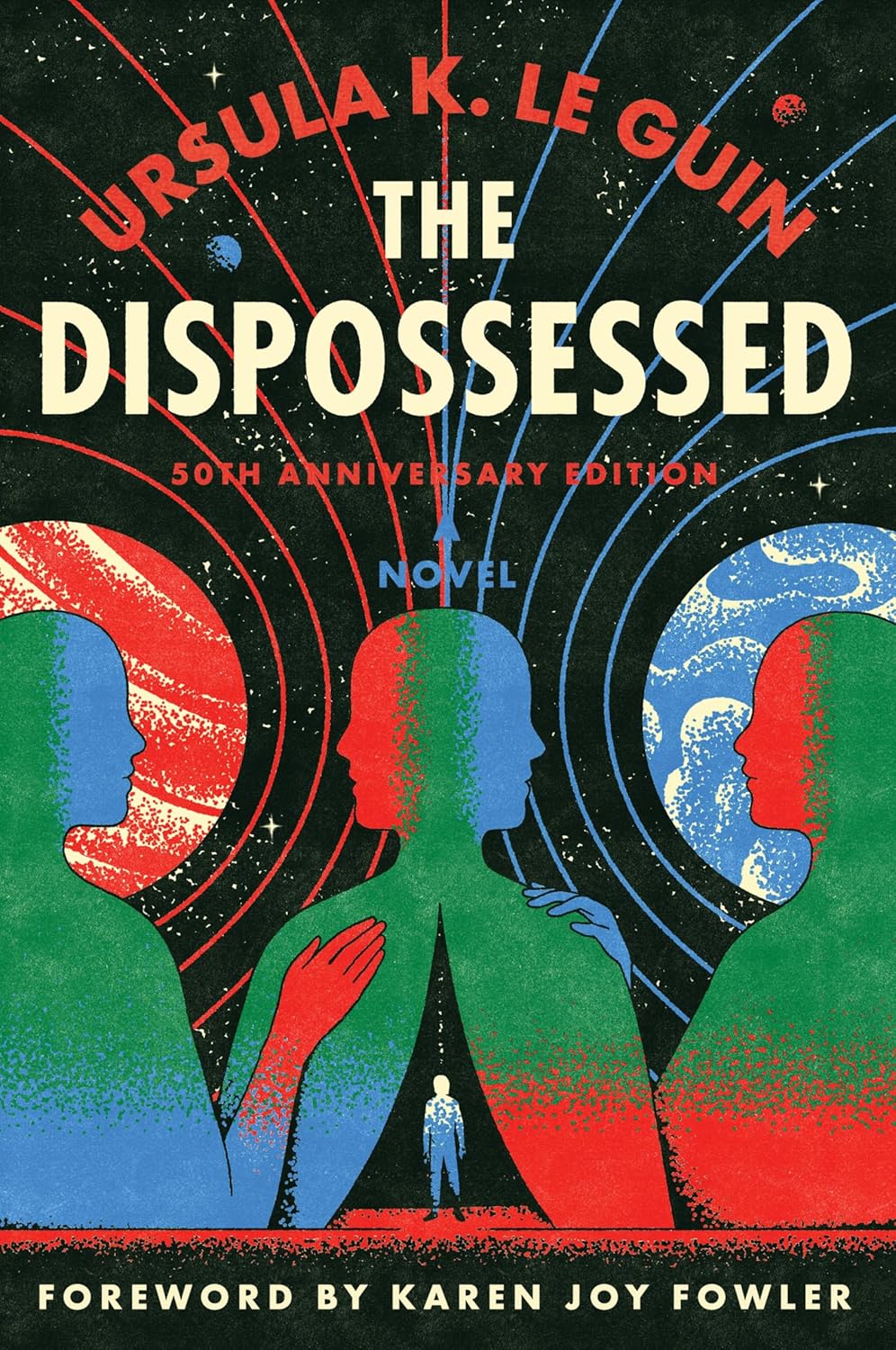Optional reviewed The Dispossessed by Ursula K. Le Guin
Where does Anarchism succeed and where does it fall short?
4 stars
The two planets Anarres and Urras are each other's moons, yet the people living on them hardly know what it's like on the other planet. All they know is that Urras is an archist society, while the people of Anarres are anarchists.
In this book we follow Shevek, a scientist from Anarres, who travels to Urras in a mission to facilitate interplanetary understanding. Every other chapter switches between past and present (or future and further future) and we thus get introduced to Shevek on Anarres and what led him to go to Urras while we also learn about him on Urras and how his mission is going.
But the book is not actually that interested in Shevek's story. Much time is spent showing us the workings (and failings) of Anarres' anarchist society: The education system, job distribution, living arrangements, romantic partnership, etc. Similarly, the chapters on capitalist and archist Urras further explores anarchism through Urras' people arguing with Shevek. Of course, we also learn about Urras' society, but any politically literate person should already know about such topics as wasteful production, poverty, police brutality, greed, etc.
Urras is obviously not presented as "the good ones", but Anarres isn't shown through rose-colored glasses either. It too is corrupted by power and is by no means a paradise. It's still a society made up of humans that can be shitty to each other.
In the end world building takes a bit of a backseat as Shevek's story becomes more important, but he is a stand-in for anyone. This story is not about a physicist—or an anarchist diplomat. It's about what justice, shame and greed are. What role art and science plays in politics. It's about what freedom means in a society.
One star is docked for a sexual assault that occurs somewhere in the middle. I don't have a problem with that topic popping up in general, but the way it enters into this story is just baffling: The people of Anarres are always painted as very conscious of power imbalances, going so far as describing sex as "copulating" as that is supposedly the only word that does not carry heavy undertones of something being done by one party to the other, but rather something done together. And still one of these folks does not understand the concept of consent! And it's not portrayed as that one person being "one of the bad ones". It would have needed more set up or explanation to be valuable.

